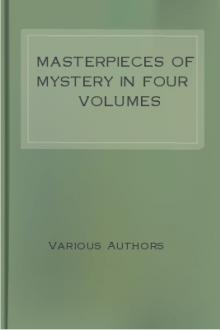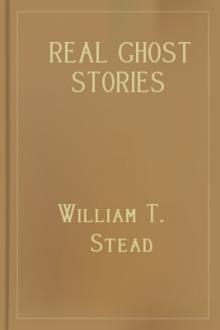Varney the Vampire; Or, the Feast of Blood by Prest and Rymer (ereader iphone .txt) 📗

- Author: Prest and Rymer
Book online «Varney the Vampire; Or, the Feast of Blood by Prest and Rymer (ereader iphone .txt) 📗». Author Prest and Rymer
"Yes, uncle. I could not be so long on the continent as I have been without picking up a good knowledge of the sword, which is so popular all over Germany."
"Humph! but only consider, this d——d fellow is no less than a hundred and fifty years old."
"I care not."
"Yes, but I do."
"Uncle, uncle, I tell you I will fight with him; and if you do not arrange matters for me so that I can have the meeting with this man, which I have myself sought, and cannot, even if I wished, now recede from with honour, I must seek some other less scrupulous friend to do so."
"Give me an hour or two to think of it, Charles," said the admiral. "Don't speak to any one else, but give me a little time. You shall have no cause of complaint. Your honour cannot suffer in my hands."
"I will wait your leisure, uncle; but remember that such affairs as these, when once broached, had always better be concluded with all convenient dispatch."
"I know that, boy—I know that."
The admiral walked away, and Charles, who really felt much fretted at the delay which had taken place, returned to the house.
He had not been there long, when a lad, who had been temporarily hired during the morning by Henry to answer the gate, brought him a note, saying,—
"A servant, sir, left this for you just now."
"For me?" said Charles, as he glanced at the direction. "This is strange, for I have no acquaintance about here. Does any one wait?"
"No, sir."
The note was properly directed to him, therefore Charles Holland at once opened it. A glance at the bottom of the page told him that it came from his enemy, Sir Francis Varney, and then he read it with much eagerness. It ran thus:—
"SIR,—Your uncle, as he stated himself to be, Admiral Bell, was the bearer to me, as I understood him this day, of a challenge from you. Owing to some unaccountable hallucination of intellect, he seemed to imagine that I intended to set myself up as a sort of animated target, for any one to shoot at who might have a fancy so to do.
"According to this eccentric view of the case, the admiral had the kindness to offer to fight me first, when, should he not have the good fortune to put me out of the world, you were to try your skill, doubtless.
"I need scarcely say that I object to these family arrangements. You have challenged me, and, fancying the offence sufficient, you defy me to mortal combat. If, therefore, I fight with any one at all, it must be with you.
"You will clearly understand me, sir, that I do not accuse you of being at all party to this freak of intellect of your uncle's. He, no doubt, alone conceived it, with a laudable desire on his part of serving you. If, however, to meet me, do so to-night, in the middle of the park surrounding your own friends estate.
"There is a pollard oak growing close to a small pool; you, no doubt, have noticed the spot often. Meet me there, if you please, and any satisfaction you like I will give you, at twelve o'clock this night.
"Come alone, or you will not see me. It shall be at your own option entirely, to convert the meeting into a hostile one or not. You need send me no answer to this. If you are at the place I mention at the time I have named, well and good. If you an not, I can only, if I please, imagine that you shrink from a meeting with
Charles Holland read this letter twice over carefully, and then folding it up, and placing it in his pocket, he said,—
"Yes, I will meet him; he may be assured that I will meet him. He shall find that I do not shrink from Francis Varney In the name of honour, love, virtue, and Heaven, I will meet this man, and it shall go hard with me but I will this night wring from him the secret of what he really is. For the sake of her who is so dear to me—for her sake, I will meet this man, or monster, be he what he may."
It would have been far more prudent had Charles informed Henry Bannerworth or George of his determination to meet the vampyre that evening, but he did not do so. Somehow he fancied it would be some reproach against his courage if he did not go, and go alone, too, for he could not help suspecting that, from the conduct of his uncle, Sir Francis Varney might have got up an opinion inimical to his courage.
With all the eager excitement of youth, there was nothing that arrayed itself to his mind in such melancholy and uncomfortable colours as an imputation upon his courage.
"I will show this vampyre, if he be such," he said, "that I am not afraid to meet him, and alone, too, at his own hour—at midnight, even when, if his preternatural powers be of more avail to him than at any other time, he can attempt, if he dare, to use them."
Charles resolved upon going armed, and with the greatest care he loaded his pistols, and placed them aside ready for action, when the time should come to set out to meet the vampyre at the spot in the park which had been particularly alluded to in his letter.
This spot was perfectly well known to Charles; indeed, no one could be a single day at Bannerworth Hall without noticing it, so prominent an object was that pollard oak, standing, as it did, alone, with the beautiful green sward all around it. Near to it was the pool which hid been mentioned, which was, in reality, a fish-pond, and some little distance off commenced the thick plantation, among the intricacies of which Sir Francis Varney, or the vampyre, had been supposed to disappear, after the revivification of his body at the full of the moon.
This spot was in view of several of the windows of the house, so that if the night should happen to be a very light one, and any of the inhabitants of the Hall should happen to have the curiosity to look from those particular windows, no doubt the meeting between Charles Holland and the vampyre would be seen.
This, however, was a contingency which was nothing to Charles, whatever it might be to Sir Francis Varney, and he scarcely at all considered it as worth consideration. He felt more happy and comfortable now that everything seemed to be definitively arranged by which he could come to some sort of explanation with that mysterious being who had so effectually, as yet, succeeded in destroying his peace of mind and his prospects of happiness.
"I will this night force him to declare himself," thought Charles. "He shall tell me who and what he really is, and by some means I will endeavour to put an end to those frightful persecutions which Flora has suffered."
This was a thought which considerably raised Charles's spirits, and when he sought Flora again, which he now did, she was surprised to see him so much more easy and composed in his mind, which was sufficiently shown by his manner, than he had been but so short a time before.
"Charles," she said, "what has happened to give such an impetus to your spirits?"
"Nothing, dear Flora, nothing; but I have been endeavouring to throw from my mind all gloomy thoughts, and to convince myself that in the future you and I, dearest, may yet be very happy."
"Oh, Charles, if I could but think so."
"Endeavour, Flora, to think so. Remember how much our happiness is always in our own power, Flora, and that, let fate do her worst, so long as we are true to each other, we have a recompense for every ill."
"Oh, indeed, Charles, that is a dear recompense."
"And it is well that no force of circumstances short of death itself can divide us."
"True, Charles, true, and I am more than ever now bound to look upon you with a loving heart; for have you not clung to me generously under circumstances which, if any at all could have justified





Comments (0)